Amid ongoing fluctuations in the global economy, Vietnam’s agricultural sector continues to assert its position, with export turnover consistently reaching record highs. Behind these impressive figures lie a multitude of emerging export opportunities, acting as a powerful growth engine that enhances the value and global standing of Vietnamese agricultural products. In this article, Viot Minh Trang provides an overview of the global agricultural export landscape, highlights key potential markets and high-growth products, and analyzes the factors driving these promising export opportunities for Vietnam.
Overview of the Global Agricultural Export Market
The global agricultural market is undergoing profound changes, presenting both challenges and opportunities for exporting countries. Worldwide demand for food and agricultural products continues to rise, especially for those with clear origins, food safety assurances, and sustainable practices. Factors such as climate change, supply chain disruptions, and geopolitical conflicts have further underscored the importance of stable agricultural exporters like Vietnam.
Green consumption trends, organic products, and traceability are becoming key drivers of the market. Consumers are increasingly focused on environmentally friendly production methods and health benefits, pushing exporters to continuously improve their standards in production, processing, and packaging.
In addition, free trade agreements (FTAs) that Vietnam has signed—such as the EVFTA, CPTPP, and RCEP—are opening doors to major markets with preferential tariffs, creating further momentum for Vietnam’s agricultural export opportunities.
Promising Markets for Vietnamese Agricultural Products
Thanks to continuous improvements in product quality and the ability to meet strict international standards, Vietnamese agricultural products have been making significant inroads into major markets worldwide, creating promising export opportunities:
China: A Billion-People Market with Strong Purchasing Power
China remains Vietnam’s largest importer of agricultural products, particularly fruits and vegetables. In 2024, Vietnam’s total export turnover of agricultural, forestry, and fishery products to China reached nearly USD 16 billion—a sharp increase compared to the previous year. Popular products include durian, banana, dragon fruit, jackfruit, and grass jelly.
China’s move to officially open its market to more types of fruits and other agricultural goods has sparked an export boom, enhancing both the value and sustainability of trade.
United States: A Demanding but High-Value Market
The U.S. is Vietnam’s second-largest export market for agricultural, forestry, and fishery products. Despite strict regulations on food safety and quarantine, it offers high value-added opportunities. In 2024, exports to the U.S. totaled around USD 13.5 billion.
Products such as cashew nuts, coffee, shrimp, pangasius fish, and tropical fruits (dragon fruit, longan, lychee) continue to have strong export potential. Businesses need to prioritize international certifications like GlobalGAP and HACCP to meet market requirements.
European Union (EU): Green Standards and EVFTA Advantages
The EU is a high-potential market, known for its strong purchasing power and preference for sustainable, socially responsible products. Thanks to the EVFTA, many Vietnamese agricultural goods enjoy significant tariff reductions. In 2024, exports to the EU reached nearly USD 5 billion.
Key export items include coffee, cashews, pepper, and fresh fruits such as dragon fruit, pomelo, and passion fruit.
To fully tap into this market, exporters must comply with strict regulations on pesticide residues, traceability, and sustainability.
Japan and South Korea: High Demand for Quality and Safety
Japan and South Korea are highly demanding markets that place strong emphasis on quality, food safety, and product aesthetics. In 2024, exports to Japan reached around USD 4.5 billion, while exports to South Korea totaled USD 2.3 billion.
Popular exports include seafood, fresh and processed fruits and vegetables, coffee, and cashew nuts.
Opportunities in these markets depend heavily on the ability to meet rigorous technical standards and ensure transparency throughout the production process.
Other Potential Markets and the Southeast Asia Region
In addition to major markets, Vietnam is also expanding into other promising destinations such as Australia, Canada, the United Kingdom, and Southeast Asian nations (ASEAN).
Though ASEAN markets offer lower prices, they serve as stable outlets with favorable logistics, making them attractive for consistent agricultural exports.
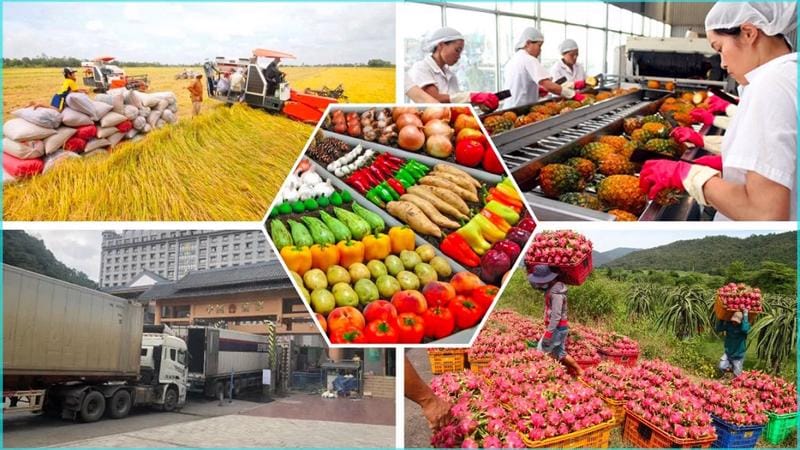
Potential market for Vietnamese agricultural products
See now:
Export Packaging Specifications – A Key Factor for Success in the Global Market
High-Growth Agricultural Export Products of Vietnam
Many Vietnamese agricultural products are effectively leveraging export opportunities and achieving impressive growth, significantly contributing to the country’s total export turnover:
Durian: The “King of Fruits” Sees Explosive Growth
Durian is among the fastest-growing export products, especially after being officially licensed for export to China. In 2024, durian export turnover reached approximately USD 3.2–3.4 billion, making a major contribution to the total value of fruit and vegetable exports.
This export opportunity is fueled by the enormous demand from the Chinese market and Vietnam’s ability to supply durians year-round with guaranteed quality and standardized farming practices.
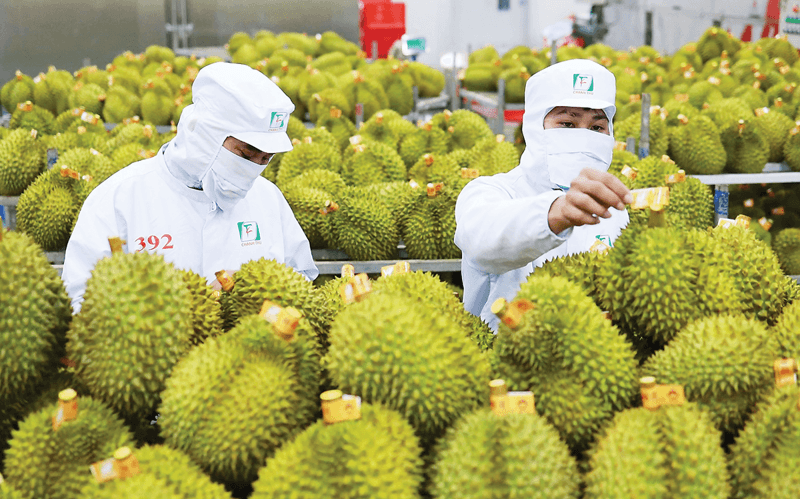
Durian export
Coffee: Value Surge Through Quality and Certification
Despite fluctuations in output due to weather conditions, coffee export turnover still hit a record of USD 5.4–5.48 billion in 2024. This growth stems from high global coffee prices and a rising demand for sustainably certified coffee.
Vietnam is optimizing its value chain, focusing on specialty and certified coffees, creating significant export potential for high-value products.
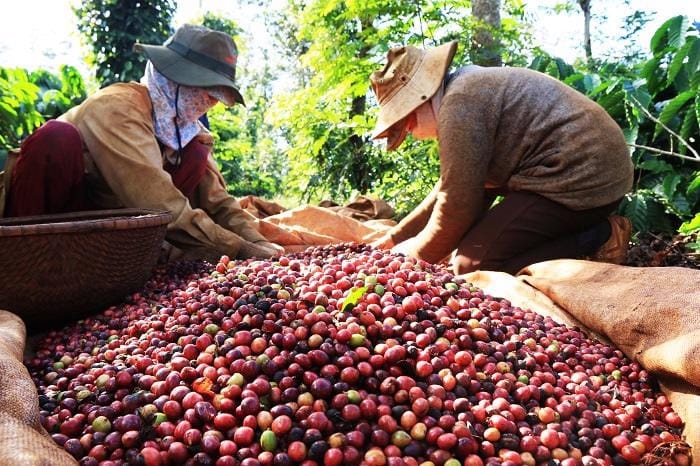
Coffee export
Rice: Rising in Value and Reputation
In 2024, Vietnam exported 9–9.18 million tons of rice, earning around USD 5.7–5.75 billion. Vietnamese rice is gaining popularity thanks to improved quality, particularly aromatic varieties.
The growing global food demand and flexible export management policies have opened up major opportunities for rice exports, solidifying Vietnam’s reputation as a reliable rice supplier.
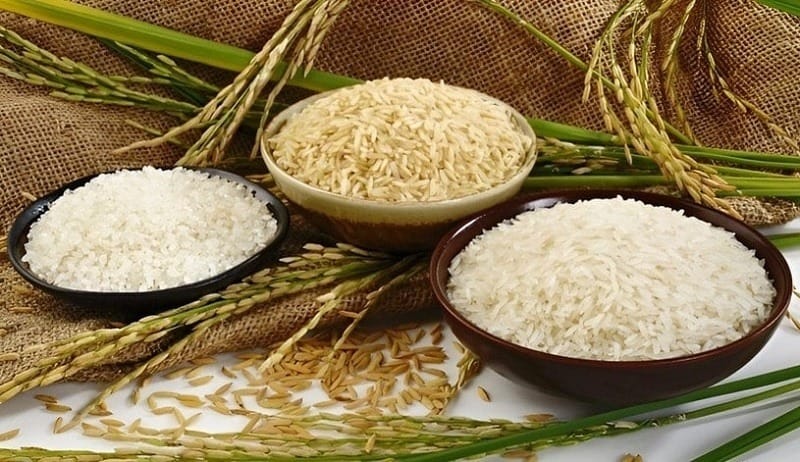
Rice
Pepper and Cashew Nuts: Growth Driven by Quality and Sustainability
Pepper and cashew nuts are traditional export staples with high export value. In 2024, cashew exports reached approximately USD 4–4.48 billion.
Both products are advancing clean, sustainable production and deep processing practices to meet the strict standards of demanding markets, unlocking greater access to premium export segments.
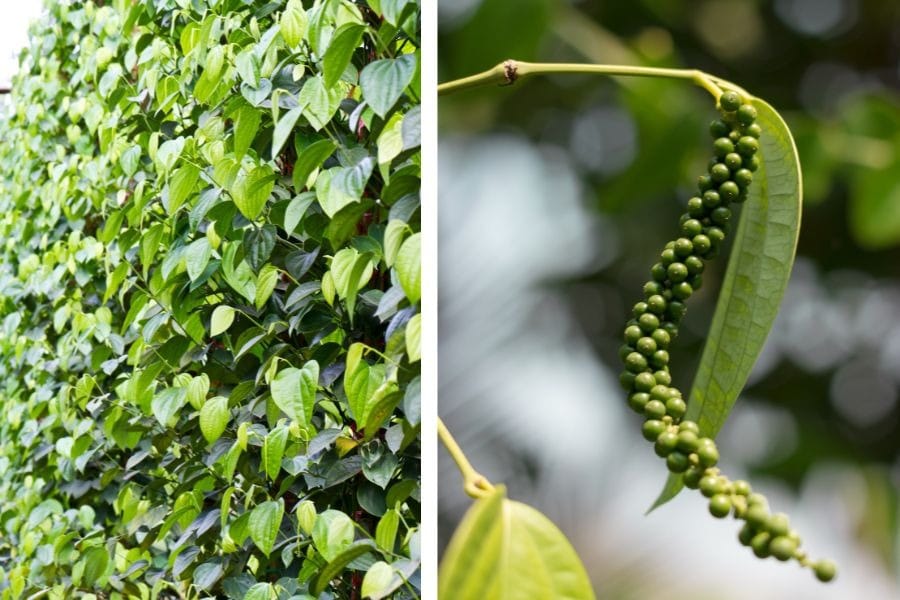
Pepper and cashew nuts
See now:
Summary of 5 popular agricultural drying methods today
Viot Minh Trang – Leveraging Agricultural Export Opportunities with International Standards
To fully capitalize on the expanding opportunities in agricultural exports, the role of pioneering enterprises is crucial. Viot Minh Trang takes pride in being a leading player in this field, committed to delivering high-quality agricultural products that meet international standards.
We manage over 3,000 hectares of raw material zones in key provinces, ensuring a stable supply and consistent quality. Notably, Viot Minh Trang’s processing plant is certified with strict international standards such as ISO 22000, HACCP, GMP, and Halal. These certifications not only affirm the quality of our products but also demonstrate strict compliance with food safety, hygiene, and sustainable production practices—key factors in helping Vietnamese agricultural products conquer even the most demanding global markets.
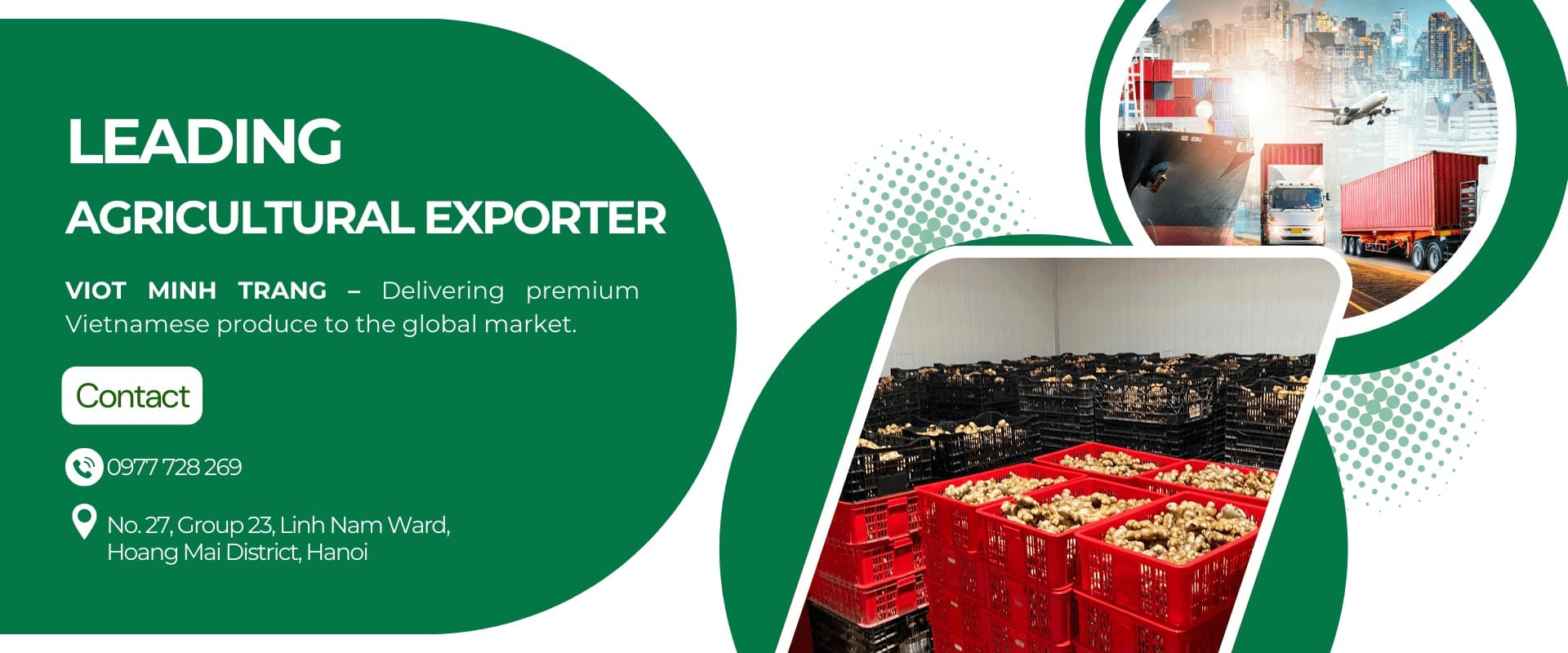
Viot Minh Trang – Agricultural products exporter with international standards
Viot Minh Trang continuously invests in advanced processing technologies and modern export packaging standards to preserve the full nutritional value and flavor of our agricultural products. We are well-equipped to meet diverse international partner needs through fresh, frozen, dried, ground products, and flexible OEM/ODM packaging services—thereby contributing to the overall success of Vietnam’s agricultural export industry.
Vietnam’s agricultural sector is facing unprecedented export opportunities, thanks to structural shifts in production, improved quality, and expanding markets. With the strong growth of core products and increasing ability to meet global standards, Vietnamese agricultural products hold immense potential to strengthen their position on the international stage.
Capturing market trends, investing in technology, and building a reputable brand—just as Viot Minh Trang is doing—will be the key to fully exploiting these agricultural export opportunities, driving economic growth, and improving the livelihoods of Vietnamese farmers.





Tác giả Tưởng Mạnh Biên
Là chuyên gia giàu kinh nghiệm trong lĩnh vực xuất khẩu nông sản. Với nhiều năm làm việc, nghiên cứu và trực tiếp tham gia vào các hoạt động sản xuất, kinh doanh và xuất khẩu nông sản, tác giả chia sẻ những kiến thức chuyên môn sâu sắc cùng các bài học thực tiễn giá trị nhằm hỗ trợ doanh nghiệp.
- Địa chỉ: Số 27, Tổ 23, Lĩnh Nam, Hoàng Mai, Hà Nội
- Email: viotvietnam.vn@gmail.com
- SĐT: 0977 728 269